School Year of Core Vocabulary Words – Older Student Lessons: AAC Resources for April
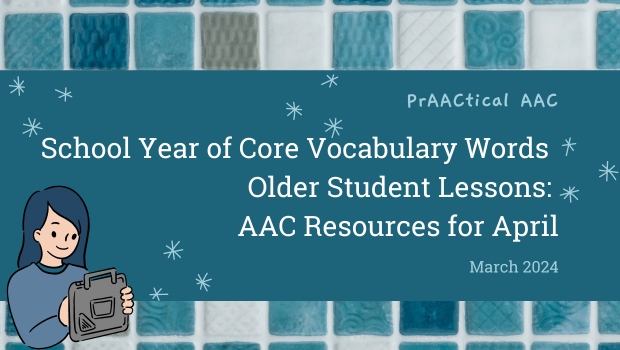
As March draws to a close, we extend our welcome to guest authors Michaela Sullivan and Lindsay Dougherty, who are back with another set of core vocabulary resources for teaching older students. Today, this dynamic team has a rich array of materials and suggestions to help them build fluency with the April core vocabulary words. They also discuss how to support AAC users during a popular classroom activity, shared reading.
SCHOOL YEAR OF CORE- Older Student Lessons
The Google Slide Resources
INTRODUCTION- April 2024
Welcome back to the School Year of Core – Older student lessons for middle school to adult learners.
How are things going? How are the resources working for you and your learners? We would love your feedback and your ideas. If you have any slides that you find work especially well for your students and adult learners, please don’t hesitate to share them with us, so that we can share them with others.
We hope we can engage you with lessons centered around springtime and the many celebrations this month. Thank you for continuing to pursue new ways to support and motivate your students and adult learners to use core (& fringe) vocabulary. We hope you find ways to have fun and connect with each other while using our slides.
The topics and holidays in the Apri SYOC-OSLs are: Spring, gardening, activities, travel, Earth Day, Arbor Day, Easter, Ramadan, Passover, April Fool’s Day, Tax Day, and Patriot’s Day.
We hope that your learners enjoy the multitude of activities offered in the April Weeks 1-2 and Weeks 3-4 Google Slide Decks. Once you make copies of the Slide Decks, they can be easily modified and adapted to meet your individual student/learner needs, (or remain just as they are).
We suggest that you download the corresponding Symbol Charts containing April Level 1 and Level 2 words to help navigate and organize your lessons. They can also be used as hands-on low tech resources.
Because we have provided over 210 slides for the month of April, it would be impossible to complete all of the activities in one month. Our motto is, “take what you want and leave the rest.” Think of this as an activity buffet, where the leftovers are always fresh. 🙂
Lessons incorporate a variety of activities to support core language understanding and use through motivating, engaging, meaningful activities and important principles of social-emotional learning.
We have provided a variety of resources to give you a greater chance of finding activities to meet your diverse student(s) needs and interests. We hope that you and your students/adults enjoy these resources created in modifiable Google Slides.
All Slide Decks contain:
- Icebreaker Activities, (e.g. Jokes, Would You Rather, National days)
- Monthly Language Resources Include:
- “Tell us a Story” slides: to support students to co-construct narratives about past experiences using meaningful photos given WH question scaffolds.
- “Get Off the Computer” suggestions for Shared Reading and Share a Word to Describe your Day: We added a few slides with Shared Reading suggestions and a topic/interest inventory where students/adults can share the topics they are most interested in.
- Self Care: We will review different topics through the lens of self care.
- Student Reflection Time: students can use a visual rating scale to share whether or not they enjoyed an activity.
- Topics: Students will share if they agree or disagree with statements, as well as answer questions related to topics of the month.
- Symbol charts: include icons from a wide array of communication systems.
- Feelings Check-In: Including sentence frames and visuals
- Weekend reflection: Including visual icons and options.
- Music Choices: Listen to music corresponding to themes and core words
- Media: animated shorts and short, educational video clips
- Predictable chart writing
- Reading
- The Strategy of the Month is Shared Reading.
Please note that although these resources were created for AAC users, they can be utilized effectively with a variety of students.
We hope you enjoy the School Year of Core-Older Student Lessons for APRIL.
THE WORDS
Weeks 1-2
- Level 1 Words: our, call, let’s, here, nice, mean, have, for
- Level 2 Words: grow, climb, slide, skip, swim, score, race, kick
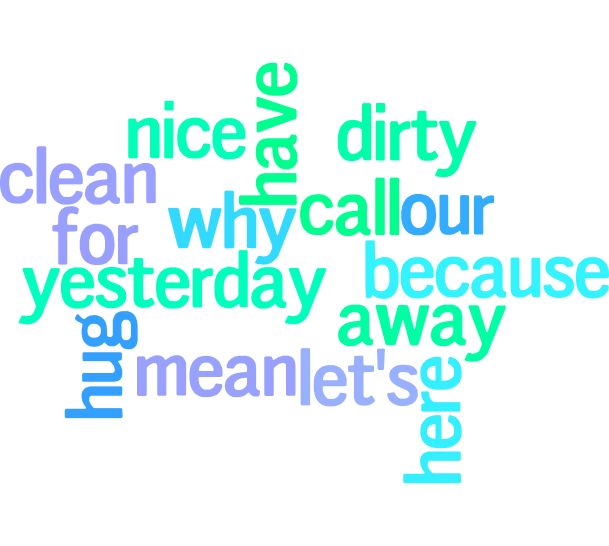
Level 1 Words
Weeks 3-4
- Level 1 Words: away, hug, clean, dirty, because, yesterday, why
- Level 2 Words: follow, around, fall, over, under, throw, bounce, step
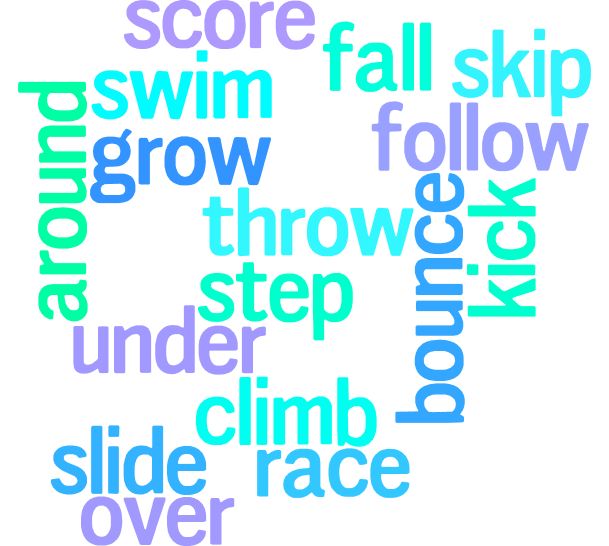
Level 2 Words
THE SYMBOLS
You can download grids with the symbols for this month’s words from the lists below. These handy visual tools can help us remember what words to focus on and be useful in our intervention and instruction.
Level 1 Words
-
- Avaz
- CoughDrop
- LAMP Words for Life
- Wordpower 60 Basic
- Unity 45 Sequenced
- Unity 60 Sequenced
- Unity 84 Sequenced
- Blank Grid (add your own symbols)
Level 2 Words
- Avaz
- CoughDrop
- LAMP Words for Life
- Wordpower 60 Basic
- Unity 45 Sequenced
- Unity 60 Sequenced
- Unity 84 Sequenced
- Blank Grid (add your own symbols)
Strategy of the Month: SHARED READING
Shared reading is an evidence-based instructional approach whereby others can help to guide the emergent reader to interact with a book by leading with a comment, asking a question, or responding to what the student may say; providing wait time in order to allow for processing and opportunities for interaction (Notari-Syverson, Maddox and Cole, 1999). In this approach, an individual may read with the learner, not to the learner. Shared reading can be conducted in 1:1 or in small or larger group dynamics.
Here, the individual/adult follows the individual’s lead and can provide modeling using the student’s AAC system to engage and interact with the book. Adults can help bridge the gaps by connecting the student’s comments, ideas, and experiences with the book. Book selection is vital in order to ensure a motivating and engaging activity for each individual student.
- Bibliography
- Dynamic Learning Maps, and
- Jane Farrall Consulting – Shared Reading: Focus on Interaction courtesy of Jane Farrall Consulting
Please find the following additional resources on Shared Reading below. These resources will be helpful for individual learning and/or for team training.
RESOURCES
- Literacy Instruction for Students with Significant Disabilities Courtesy of Edmonton Regional Learning Consortium
- Introduction to Shared Reading by the Ace Centre, providing an overview and quick examples, (video)
- Shared Reading with AAC Users courtesy of Life Skills 2 Learn (Video)
- Stepping Stones to AAC: Let’s Read a Book!, (28 minute presentation by Brittany Toney SLP, and Heather Prevonost, SLP), PRC Saltillo.
- Shared Reading with AAC Users (VIDEO)
- Shared Reading: Focus on Interaction courtesy of Jane Farrall Consulting
- Integrating comprehensive literacy instruction Courtesy of AssistiveWare
- Tar Heel Shared Reader, (developed by a team at the Center for Literacy and Disability Studies at University of North Carolina at Chapel Hill) provides electronic shared reading resources with PCS symbol supports, (to help students engage in shared reading activities). Additionally, free professional development modules are available for training on using Tar Heel Reader teaching at this link: Quick Start Guide to Tar Heel Shared Reader
- Find a book on Tar Heel Shared Reader (Select from numerous books to engage your emerging readers).
- Shared Reading training modules by Dynamic Learning Maps, These self-directed training(s) are available to complete at your own pace.
- Shared Reading (17 minute training) by Dynamic Learning Maps
DATA COLLECTION & ACCOUNTABILITY FORMS
Taking data to measure performance and keeping track of our own modeling behavior are two things we can do to strengthen our AAC teaching. Here are some forms that you can use to support those efforts.
This posting is dedicated to all of the amazing Educators, SLP’s, parents and therapists who are making a difference every day!
About the School Year of Core-Older Student Lessons Series Authors
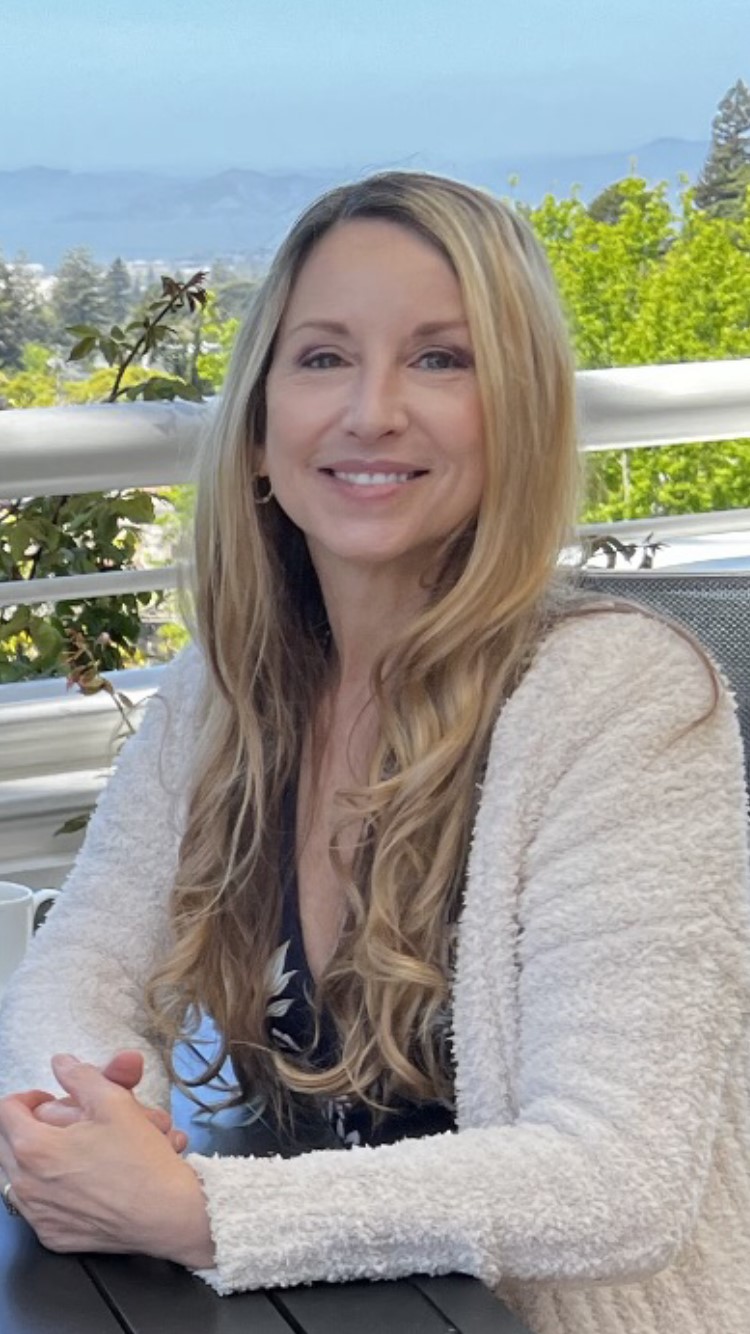 Michaela Sullivan is an SLP who specializes in the fields of AAC and AT. She currently works within the San Francisco Unified School District on the AAC Support Team where she supervises graduate student interns, works in a transition program and on special projects. Ms. Sullivan also has a private practice. She has been a presenter in the field of Speech-Language Pathology and AAC at state and national conventions. She was one of the creators of the Original School Year of Core first released in 2020 on the websites: PrAACtical AAC and AAC Language Lab. Ms. Sullivan works closely with San Francisco State with Project AAC for ALL, SYOC Bilingue and the TRAAC Project. Ms. Sullivan serves as a Board member, Treasurer and Volunteer for the Nika Project, providing services, supports, resources, training, and repurposed equipment to help meet the needs of individuals who use AAC systems both locally and internationally.
Michaela Sullivan is an SLP who specializes in the fields of AAC and AT. She currently works within the San Francisco Unified School District on the AAC Support Team where she supervises graduate student interns, works in a transition program and on special projects. Ms. Sullivan also has a private practice. She has been a presenter in the field of Speech-Language Pathology and AAC at state and national conventions. She was one of the creators of the Original School Year of Core first released in 2020 on the websites: PrAACtical AAC and AAC Language Lab. Ms. Sullivan works closely with San Francisco State with Project AAC for ALL, SYOC Bilingue and the TRAAC Project. Ms. Sullivan serves as a Board member, Treasurer and Volunteer for the Nika Project, providing services, supports, resources, training, and repurposed equipment to help meet the needs of individuals who use AAC systems both locally and internationally.
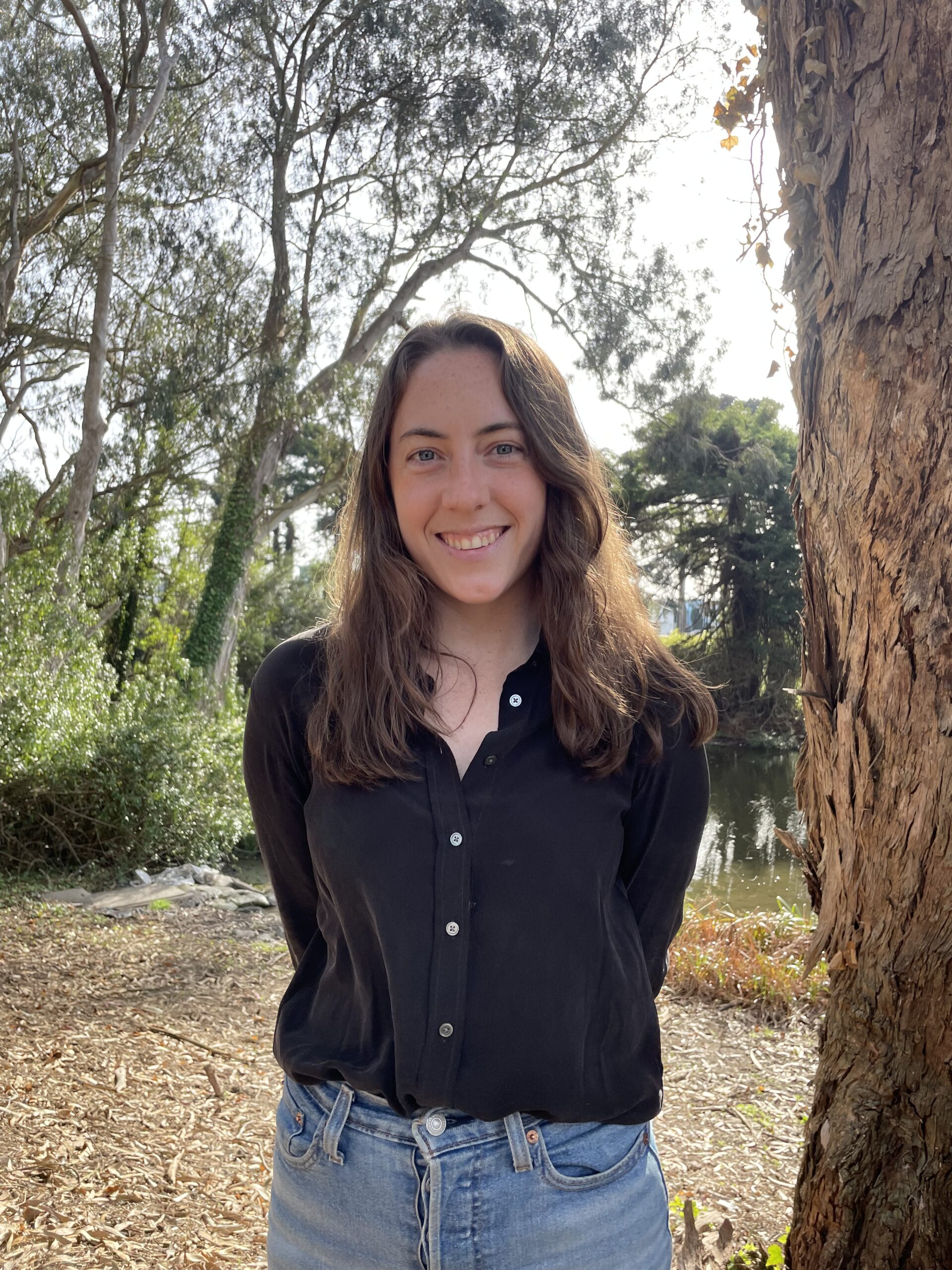 Lindsay Dougherty is a Speech & Language Pathologist with specializations in Autism and AAC. She currently works for the San Francisco Unified School District, providing direct services to students with complex communication needs and supporting her fellow SLPs on the AAC Support Team. Lindsay works on a team of professionals, implementing a Language Systems First curriculum for Pre-K and Kindergarten classrooms across the school district. The team provides a universal language system, staff and parent training, and AAC support to teachers and SLPs. She is also the faculty advisor of her middle school’s Best Buddies Club, where she supports students with disabilities in building meaningful friendships with peers.
Lindsay Dougherty is a Speech & Language Pathologist with specializations in Autism and AAC. She currently works for the San Francisco Unified School District, providing direct services to students with complex communication needs and supporting her fellow SLPs on the AAC Support Team. Lindsay works on a team of professionals, implementing a Language Systems First curriculum for Pre-K and Kindergarten classrooms across the school district. The team provides a universal language system, staff and parent training, and AAC support to teachers and SLPs. She is also the faculty advisor of her middle school’s Best Buddies Club, where she supports students with disabilities in building meaningful friendships with peers.
Our Featured Core Contributors for the Month of April include:
Jadine Veluya, Christelle Marcelo, Joseph Cachapero
Filed under: Featured Posts
This post was written by Carole Zangari
